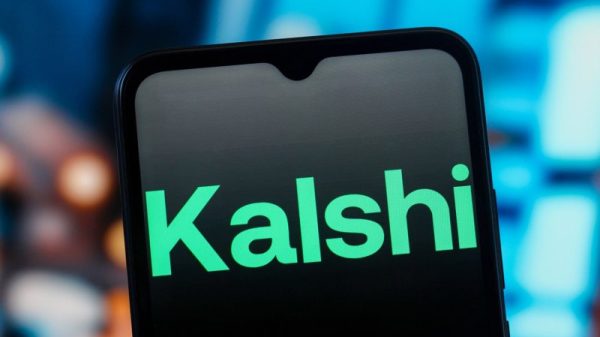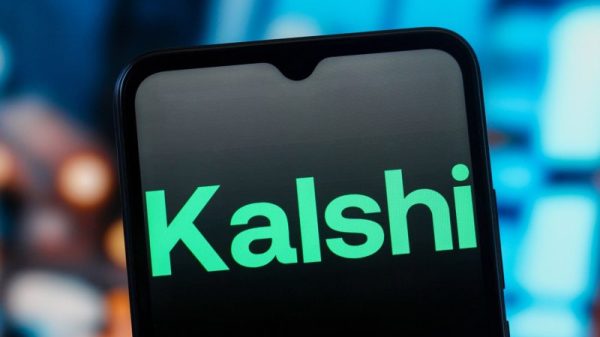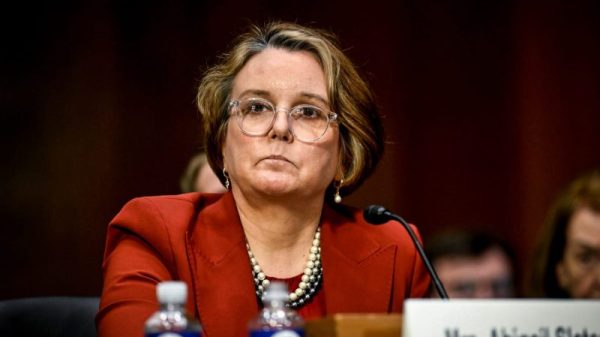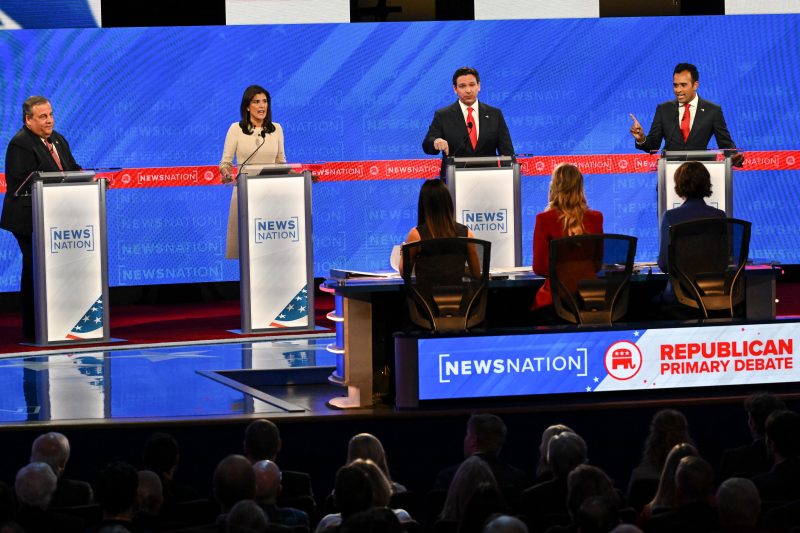TUSCALOOSA, Ala. — Four Republican presidential contenders clashed in Wednesday’s presidential primary debate, as former U.N. ambassador Nikki Haley and Florida Gov. Ron DeSantis sought to solidify their second-place position with less than six weeks left before the Iowa caucuses. Former president Donald Trump once again skipped the showdown.
Haley, who has surpassed or tied DeSantis in early state public polling, found herself the target of attacks early on, and at one point former New Jersey governor Chris Christie came to her defense. Haley and DeSantis continued to tussle on China, while Christie used his airtime to hit Trump for skipping the debates. Christie accused his opponents onstage of being hesitant to cross Trump, who holds a dominant polling lead in the primary race. Meanwhile, tech entrepreneur Vivek Ramaswamy espoused conspiracy theories and leveled personal attacks on his rivals.
While moderators asked a range of questions from border security to gender-affirming care to Trump’s fitness for office, the candidates were not asked about abortion — an animating issue for conservatives and one of the most divisive issues of the 2024 cycle.
The debate, held here Wednesday at the University of Alabama, may be the final forum sanctioned by the Republican National Committee, as the party considers releasing the candidates to face off in other events.
Here’s what else stood out last night:
The former president’s dismissal of the debates has continued to deny any of his rivals the opportunity to challenge him directly and diminished the events’ draw. Though considered risky at first, there is no sign Trump has paid any political price for skipping the debates — Wednesday he picked up the endorsement of host state Sen. Katie Boyd Britt (R).
Christie used his first chance to speak, which didn’t come until roughly 17 minutes into the debate, to go straight for Trump, and argue that his 2024 rivals’ failure to attack Trump directly was the problem. Christie called Trump unfit for office, echoing alarms that the former president would govern as an autocrat based on his recent threats to send the Justice Department after his critics.
“They don’t want to talk about the fact that when you go and you say the truth about somebody who is a dictator, or bully, who has taken shots at everybody,” Christie said of his rivals. “I’m in this race because the truth needs to be spoken. He is unfit.”
Toward the end of the first hour, Haley said Trump deserved some blame for adding to the national debt during his administration. DeSantis then agreed that Republicans were responsible for deficit spending, but he did not single out Trump.
Kelly teased opening the second hour with more discussion of Trump, but she kicked it off by asking the candidates to respond to Trump’s proposals on blocking migrants based on ideology or religion. Christie took another opportunity to turn back to Trump’s character, drawing a mix of cheers and boos from the audience despite their being instructed to watch quietly. DeSantis offered a mix of critiques, from Trump’s age and electability to his conduct during the pandemic.
While Trump sought to upstage those gatherings with his own counterprogramming, he treated this one as not even worth competing with, spending the evening at a private fundraiser instead. Viewership declined over the course of the previous debates, and because last night’s debate was hosted by an upstart network and sponsored by an alternative video-hosting site, it was likely to draw a still-smaller audience.
Since the last debate about a month ago, Haley’s star has risen as the leading Trump alternative in the race, surpassing DeSantis for a distant second place in the three early states. Strong debate performances have fueled her ascent, earning second looks and powerful endorsements from both donors and voters.
That momentum has provoked fresh attacks from DeSantis, Christie and Ramaswamy that were all on display Wednesday night. Out of the gate, DeSantis accused Haley of caving to pressure from the left, the media and donors. Ramaswamy criticized her for taking donations from Democrats, including LinkedIn co-founder Reid Hoffman, and for her proposal that all social media users should be verified, which she later walked back.
Haley appeared unruffled and hit back hard, calling the other candidates jealous of the support she’s gaining. “I love all the attention, fellas, thank you for that,” she said.
Christie came to Haley’s defense after Ramaswamy insulted her intelligence. Christie said he and Haley disagreed on policy but “what we don’t disagree on is this is a smart accomplished woman.” Both former governors have made inroads with the same group of independents and anti-Trump Republican voters in New Hampshire. Haley polls second behind Trump in the state, but Christie is pulling more than 10 percent of potential primary voters — a share that could prove essential to GOP consolidation efforts against Trump. Leading up to the debate, Christie called out Haley for shifting positions and accused her of trying to have it both ways on Trump.
Ramaswamy repeatedly used his time for outrageous provocations, promoting conspiracy theories that the Jan. 6, 2021, attack on the Capitol was staged and that the 2020 election was stolen. As in previous debates, he made personal attacks on the other candidates, including calling Haley a “fascist,” drawing clear exasperation from them, the moderators and the audience.
After Ramaswamy insulted Haley’s intelligence, Christie came to her defense and seemed to capture the collective animosity onstage toward the political newcomer, engaging in a heated exchange.
“This is the fourth debate that you would be voted, in the first 20 minutes, as the most obnoxious blowhard in America,” Christie said. Ramaswamy swiped back with a dig at Christie’s weight.
Later, Ramaswamy held up his notepad where he’d scrawled in large print: “NIKKI = CORRUPT,” drawing boos from the crowd.
Asked by moderators whether she would like to respond, Haley replied, “No. It’s not worth my time.”
After struggling to get words in during earlier debates, Christie established a clear role for himself in demanding accountability from Trump, as well as the other candidates.
Other than a detour to scrap with Ramaswamy, Christie was disciplined in finding ways to bring his answers back to Trump. In response to a question about restoring public confidence in federal law enforcement, Christie drew on his own experience as a U.S. attorney and proposed appointing an independent, well-respected attorney general and keeping politics out of prosecutions — a striking contrast to Trump’s threats to respond to his prosecutions by turning federal power against his political opponents.
Christie twice dinged DeSantis for dodging questions, first for not specifying what steps he would take to rescue American hostages in Gaza, and later for avoiding a clear answer on whether Trump is too old to serve.
The receptivity for such answers in today’s GOP remains unclear. Christie narrowly met the polling threshold to be included in the debate.
Haley joined Trump in supporting a ban on migration from Muslim countries. Of Iran, she said, “You’ve got to punch them, you’ve got to punch them hard,” but said she didn’t mean bombing the country at this time. DeSantis also supported restricting Muslim immigrants and accused European countries of “importing” antisemitism. He even referred to traditional Arab clothing as “man dresses.” Ramaswamy threatened to “smoke the terrorists” on the southern border, repeated his proposal to provide the Taiwanese people with firearms, and suggested the United States should change its long-standing policy of “strategic ambiguity” in favor of committing to defend the island nation from China. He also gave credence to the “great replacement theory,” a racist conspiracy theory that posits that Jews, racial minorities and immigrants are seeking to replace White Americans through higher fertility rates and migration.





























